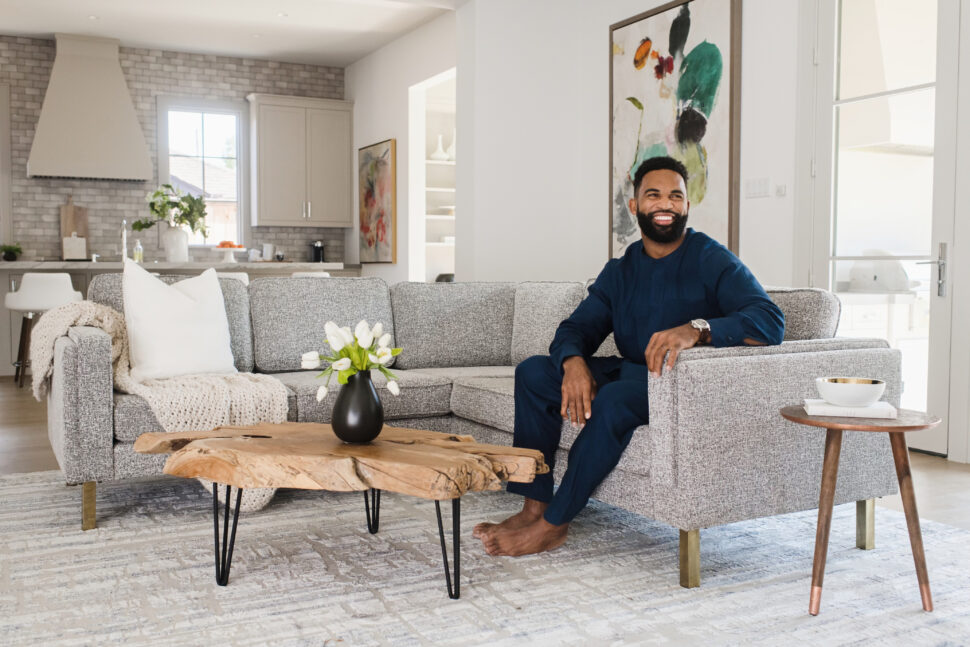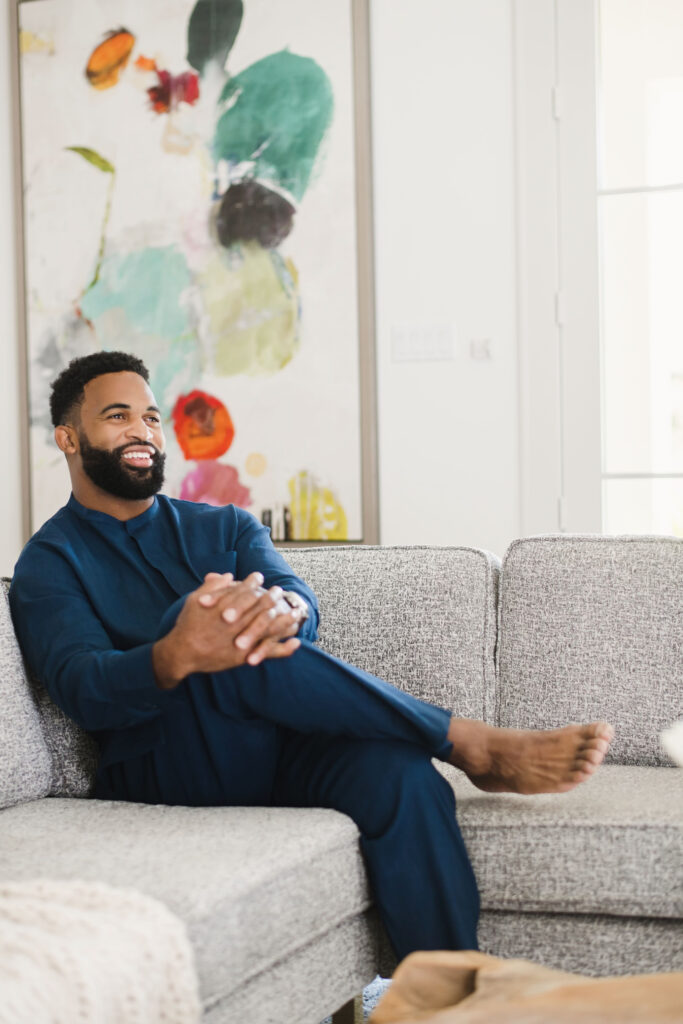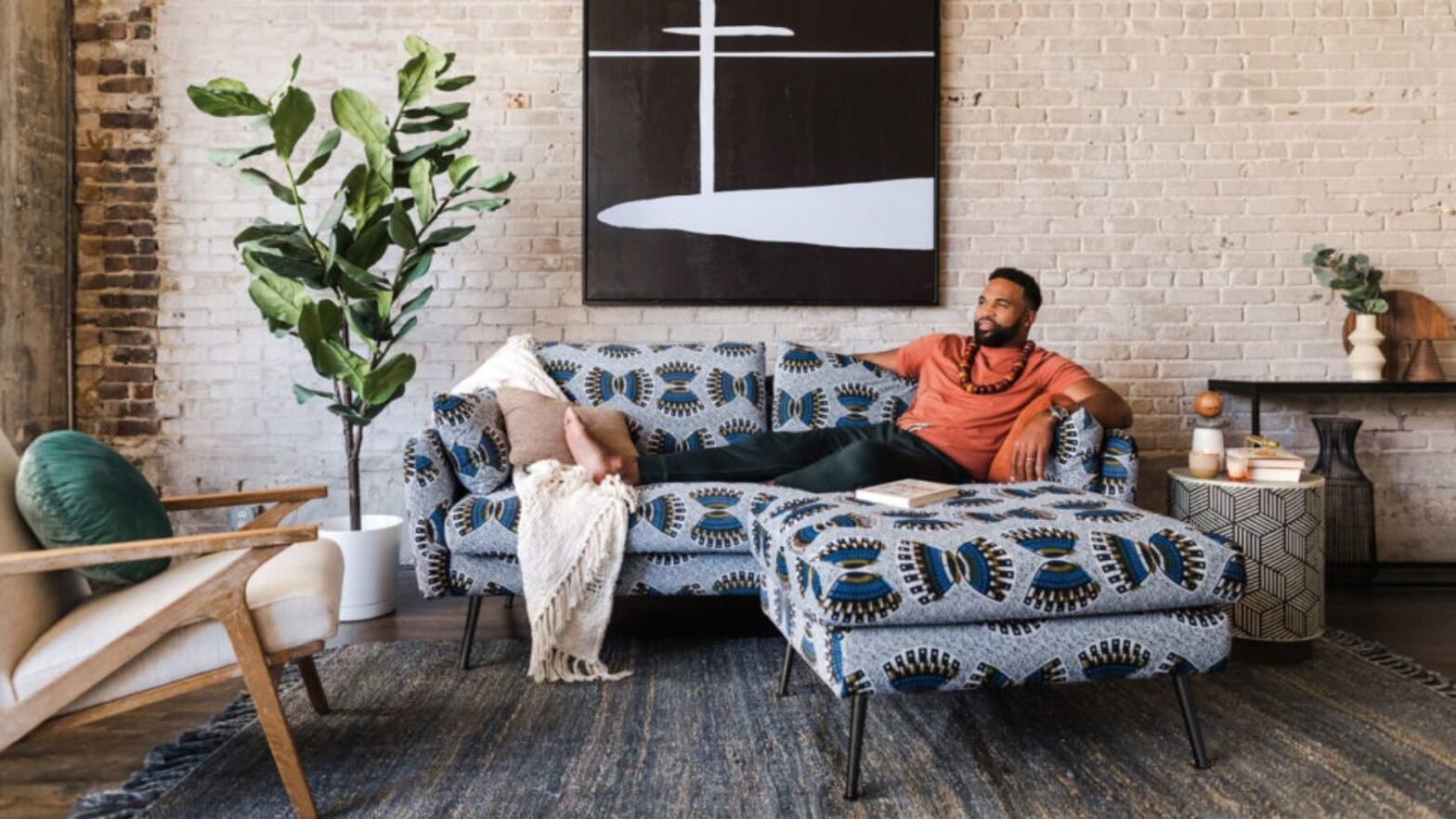In a culture saturated with cautionary tales of ex-athletes squandering their fortunes, former NFL player, Darryl Sharpton, emerges as a rare success story. Defying stereotypes and defying the odds, Sharpton has shattered the clichés that surround football jocks, propelling himself to unprecedented heights.
Following the lucrative sale of his thriving furniture brand, Albany Park, the former athlete has transformed into a bona fide multi-millionaire. Now, Sharpton sets his sights on the hospitality industry, preparing to embark on his next venture in the form of a bespoke boutique hotel brand. With Houston as his initial launchpad, Sharpton aims to redefine the hotel experience and offer a fresh perspective to discerning travelers.
In a candid conversation with Travel Noire, Sharpton sheds light on his remarkable journey beyond the gridiron. He reflects on life after sports, the intricate workings of the business world, and the sacrifices that paved his path to prosperity. Despite his tremendous achievements, Sharpton remains remarkably humble, his unassuming demeanor belying his extraordinary accomplishments.

Travel Noire: I’m sure you get asked this often, but how did you not fall into the trap? What sets you apart from other athletes that go through those horror stories of having it all and then losing it once the game is over? Are some of your peers asking you for advice these days?
Darryl Sharpton: I’ll admit, I would love to say I didn’t fall for the trap but I did at some level. If you give a 23-year-old $500,000, I don’t care how many seminars or symposiums you take them to and say, “This is how you should do this,” it won’t change a young man’s spending habits.
Now I do believe I’ve built a track record for success, and I do have some fundamental beliefs that I like to share with people. One of the biggest things for me is self-sacrifice or sacrifice. Where you have to sacrifice something in order to get something back. When I started my business, I gave up drinking, stopped using profanity, and even stopped listening to music that gave me any negative thoughts. Even my family thought I was weird because I was listening to smooth jazz and classical music. I got so focused on accomplishing this task that I said to myself anything that didn’t serve my purpose of bettering my family or my business I cut it out. It has to serve me.
What I notice a lot of times [is] people have their eye on making money, chasing money is a distraction. You have to chase solving a problem, solve a real problem, and pursue a passion you have.
TN: What’s your thought process behind starting the Sharpton Hotel brand during a rough transition post-COVID for the hospitality industry, and why now?
DS: It’s one of those things where I believe I can genuinely add value to the industry. I first got light of the industry because my first really big client was a short-term rental hospitality brand. Currently one of the biggest in the country and they had ordered loads of furniture from my Albany Park brand. This made me curious about their business model and I had a front-row seat to how their business worked. I started staying at some of the units that had our furniture in it. I saw how important our furniture was to the value of the stays they were putting together. Of course, like anything else, I thought I could do it better. Give it my own sauce.
My vision with the Sharpton Hotel brand, and I don’t want to reveal too much of my secret sauce, but I believe a lot in walkability. Even I’ve become a very walkable person that wants to enjoy the walkability of a city. I believe the city is an amenity to a stay. That’s the thing I like about myself and my vision, I never do anything that I wouldn’t want myself. I wouldn’t design a piece of furniture I wouldn’t want in my own home, and I won’t create a stay that couldn’t cater to me and my kids.
Creating spaces that are different than the typical high-rise apartment complex, I’m looking at smaller-scale apartments, where your front door leads right into the city. Also, I’m a design snob. I have to put all of my design passion to create a space that’s really warm. I want to create spaces that are inspirational—where the customers are excited to go back to their stays or aspire to have their own home look like one of our spaces. Now I do believe there are companies that are doing it well, but I know I can do it better.

TN: What do you want our readers to walk away with when it comes to experiencing a Sharpton Hotel?
Black travel in Houston is really big. The way that a Black woman experiences Houston is going to be different than when a White man experiences Houston. A totally different experience. One of the facets of The Sharpton is being able to identify what our brand is.
I stayed at many luxury hotels and, a lot of times, somewhere deep down inside I feel a little uncomfortable. Doesn’t matter how much money I have, it feels like these spaces weren’t truly designed for me. Even at times when I want to book a really nice Airbnb, I wonder if the host is going to be cool [that] I’m Black.
We are looking to create spaces that aren’t Eurocentric. We want to offer something that’s different. Our focus is on the subtle details. It’s not only saying that we’re Black-owned, we have to bring even more to the table.
RELATED: Meet The Two Black Hoteliers Changing The Hospitality Industry





